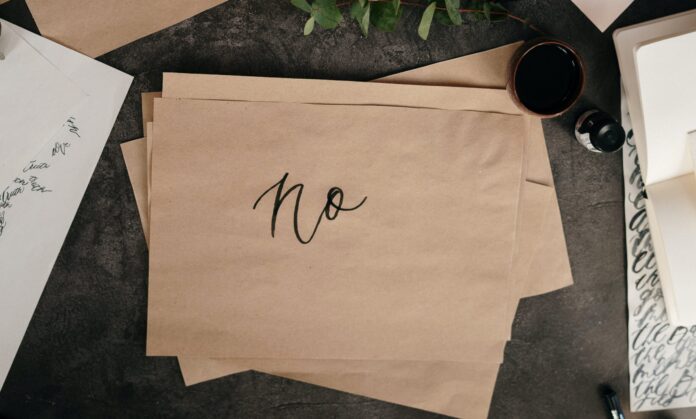If you take a look through TikTok or any other social media site, one form of self-therapy is hitting all the headlines: rejection therapy. Based on a fairly simple concept, rejection therapy essentially involves exposing yourself to low-stakes rejections in order to improve your social confidence, self-belief, and public speaking skills. Some of those who’ve tried it rave about the boost it gives them, but as this form of therapy isn’t usually monitored by a professional therapist and involves interacting with strangers on the street, if you want to give it a go there are a few things to consider first.
Start Slow
If you are somebody who panics at the idea of interacting with a stranger, don’t aim too high on the first day of your rejection therapy challenge. See if you can ask for a free whipped cream topping from your barista or ask to borrow something small like a pen from a supermarket cashier. This way, you don’t have to approach someone out of the blue and you can simply leave the cafe or store once you’ve finished your interaction. Be mindful of always being polite to those working in the service industries.
Be Mindful of Stranger’s Reactions
Those who’ve tried rejection therapy have claimed that the majority of people they’ve interacted with have been calm and relaxed and found the requests for selfies, free coffees, or a bite of their sandwich funny. However, if you are going to approach people you don’t know you will have to be prepared for all sorts of reactions. This is part of why the therapy is effective for some people, as moving past that uncertainty and anxiety can prove a confidence boost, but if it feels like it’s getting too much then allow yourself a break from the challenge.
Seek Professional Advice
Ultimately, the best way for many people to work through their issues is to seek the support of a certified therapist. Whilst the cost of this is prohibitive for many, you could ask for a single session to talk through your plans for or experiences of rejection therapy—a good therapist will be able to gauge whether this is something that could potentially be beneficial for you, or cause more harm than good.







